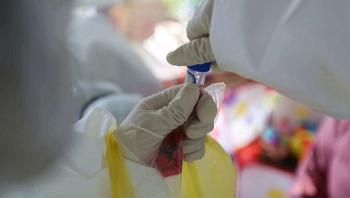Can you get COVID-19 more than once? Answers to that and other questions
TORONTO -- As Canada’s total number of confirmed cases of COVID-19 tops 450, health-care professionals are being inundated with questions about how the virus spreads, who’s at risk, and how people can protect themselves.
To sort through some of the noise, several doctors answered some of the most frequently asked questions about the ongoing pandemic.
- Complete coverage at CTVNews.ca/coronavirus
- Newsletter signup: Get The COVID-19 Brief sent to your inbox
Can you contract COVID-19 more than once?
There have been media reports in China, Japan, and South Korea about individuals who had the virus and eventually tested negative for it and were released, only to test positive for it again a short time later.
Scientists in those countries have speculated that testing errors could be to blame, either for a false negative that said the patients were free of the virus or for the positive result that signalled its reoccurrence.
Dr. Iris Gorfinkel, a family physician and medical researcher, said it’s really too soon to know whether an individual can contract COVID-19 more than once, and how quickly that can happen.
“We actually don’t know. We don’t know how long-lasting the immunity is to it,” she told CTV’s Your Morning on Monday. “These viruses have the tendency to morph and change.”
In fact, it’s still not even clear if people develop an immediate immunity to COVID-19, as is typically the case with other virus strains, such as the flu.
“So just like any other virus, there’s the possibility that it could shift or drift. Just minor changes could change it from a once mild infection to a more severe infection,” she explained.
How do you know if you have a cold, the flu, or COVID-19?
Those who are infected with COVID-19 may have few to no symptoms, according to the Public Health Agency of Canada. If symptoms are present, they can easily be mistaken for a common cold or the flu because of their similarities.
According to the health agency, the main symptoms of COVID-19 are fever, coughing, difficulty breathing, and pneumonia in both lungs. In severe cases, the illness can even result in death.
Gorfinkel said clinicians can’t distinguish between the illnesses based on symptoms alone. She said they can all present the same way, which is why the patient’s travel history or history of exposure to the virus is so important in determining whether someone might have COVID-19.
“We do not have the facilities or the tests to test absolutely everybody, so that history of travel if you’re basically otherwise well, that’s a critical part of it,” she explained.
Can the virus linger on surfaces or be transmitted through the air?
While the research is still in its early stages, the World Health Organization (WHO) says that preliminary evidence suggests the new coronavirus can persist on surfaces for a few hours or up to several days, but this might vary depending on conditions, such as the type of surface, humidity, and the environment.
As for whether the virus can be transmitted through the air, the WHO states that “the virus that causes COVID-19 is mainly transmitted through contact with respiratory droplets rather than through the air.”





